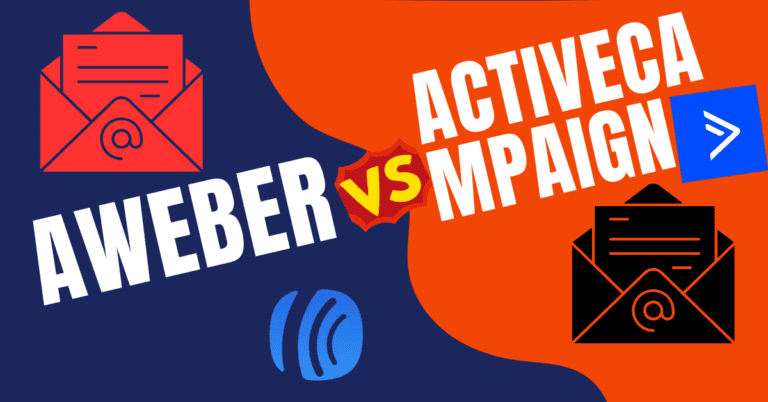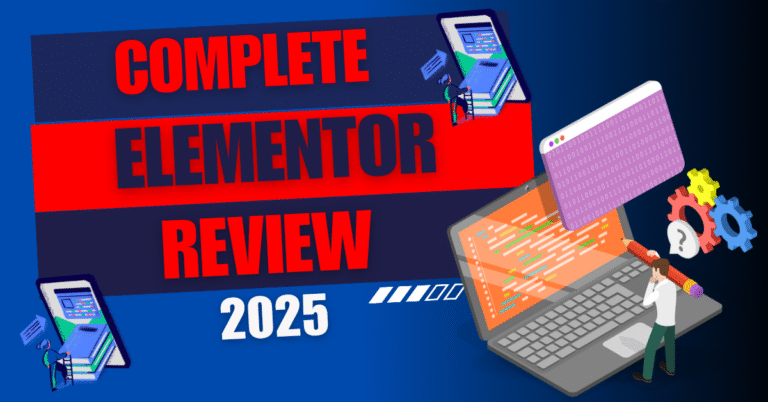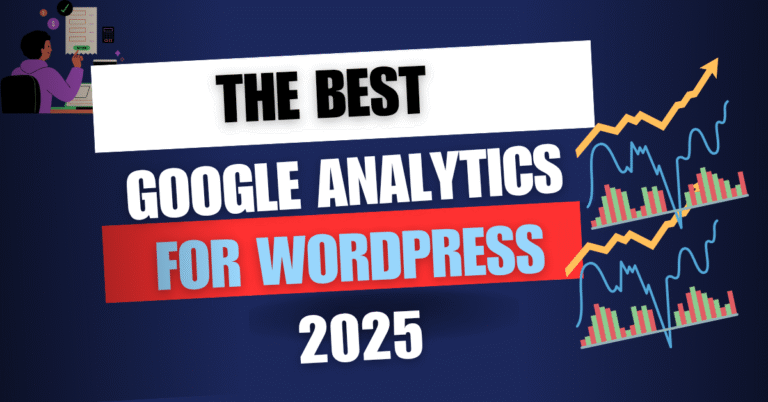When you purchase through our links, we earn commissions at no extra cost to you.
Elementor has become one of the most popular WordPress page builders, offering a powerful drag-and-drop editor that simplifies website design. With Elementor, users can build visually stunning websites without needing any coding experience, which has contributed significantly to its widespread appeal. In this Elementor review, we’ll dive into its standout features, ease of use, pricing, pros and cons, and more.
Whether you’re a beginner or an experienced website creator, this review will help you determine if Elementor is the right tool for your needs. We’ll walk you through what makes it unique, from its theme and popup builders to WooCommerce integrations and its hosted cloud solution, so you can make an informed decision.
What is Elementor?
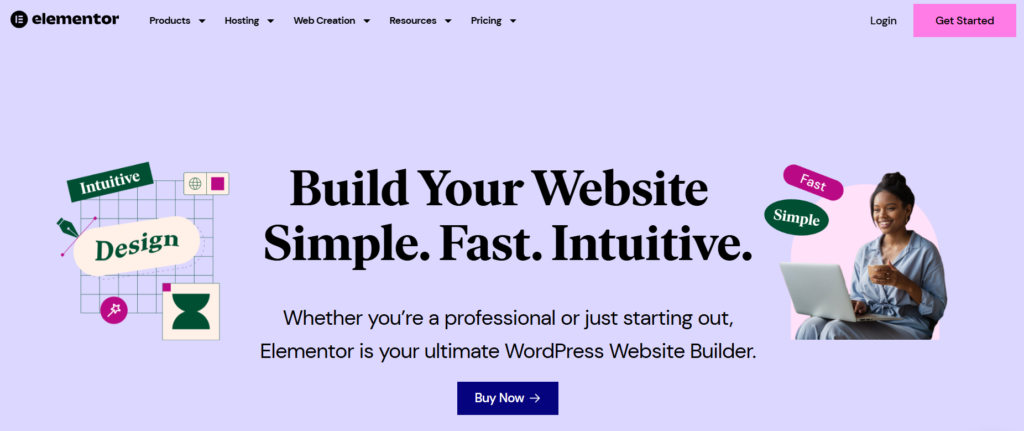
Elementor is a sophisticated WordPress page builder tool created in 2016 by a group of online experts that want to expedite and simplify the website building workflow. Frustrated with the sluggish and frequently clunky standard WordPress editor, they developed Elementor to give users an intuitive, drag-and-drop editor that makes developing visually beautiful websites simple and accessible.
Today, Elementor is used by over 2 million people globally, including marketers, content makers, developers, and entrepreneurs. Its popularity derives from its versatility and ease of use, with both a free and Pro edition available. Unlike many other free page builders, Elementor’s free edition provides enough capabilities to turn a simple website into a smooth, professional-looking platform. However, for those looking for even more sophisticated features, the Pro edition offers an all-in-one design solution that includes tools such as theme building, expanded design components, and integration capabilities.
Essential: $59.00 Advanced: $ 99.00
Expert: $199.00 Agency: $399.00
⭐⭐⭐⭐⭐
Rating: 4.5 out of 5.Who is Elementor for?
Elementor is intended for everybody who uses WordPress, from novice users to experienced specialists. While it is not the only drag-and-drop page builder available, it is notable for its simple layout and ease of use.
The Casual User
For casual users wishing to add flair to their articles or build an appealing homepage, Elementor is the perfect answer. Its user-friendly design allows you to start creating pages and adding features quickly, even if you’re a beginner. Furthermore, the extensive library of high-quality Elementor templates makes adjustment easy and accessible.
The Digital Marketer
Elementor is also a great tool for digital marketers, with a variety of promotional options. The Form widget in Elementor Pro allows you to develop a variety of lead forms and combine them with major email marketing systems. The Popup Builder allows you to create opt-in popups and strategically put them across your website. Furthermore, Elementor’s library of landing page templates simplifies marketing initiatives, making it a benefit for any marketer.
Agency or Freelance Designers
Elementor Pro is a popular choice among agencies and independent designers that create websites for customers. When paired with a versatile theme like Astra, Elementor enables quick and scalable website construction. The Elementor Theme Builder and its AI features allow you to develop templates for specific post types and incorporate dynamic data via plugins such as ACF, Pods, and Toolset, making it a useful and adaptable tool for client projects.
Elementor Pros and Cons
- Ease of Use
- Free Version
- Extensive theme and plugin ecosystem
- Elementor AI
- Comprehensive feature set
- No-code solution
- Woocommerce support
- may be overwhelming beginners
- No Unlimited license
- some performance impact
- A lot of features are premium only
Top Elementor Features

Intuitive Drag-and-Drop Builder
Elementor’s biggest distinctive feature is its user-friendly drag-and-drop interface, which allows users to create and design pages in real time without using any code. This tool streamlines the design process by allowing you to choose any widget—such as text boxes, images, buttons, or even complicated forms—and quickly insert it in your page layout precisely where you want it.

The interface is intended to help both designers and beginners, enabling a natural workflow in which you may layer items, alter sizes, colors, and spacing, and experiment with new layouts without fear of losing progress. Elementor also provides flexible, responsive editing, allowing you to optimize the design for computers, tablets, and mobile phones all from a single interface.
Advanced Design Options
Elementor offers a comprehensive set of sophisticated design choices that improve website looks, particularly with Elementor Pro. Users may quickly customize the appearance of their website with full controls over essential features such as color palettes, typography options, and spacing modifications, resulting in a unified and professional visual experience throughout the site. Beyond these fundamental design capabilities, Elementor Pro adds custom positioning, which allows users to precisely arrange elements anywhere on the website without relying on limited layouts. This allows for distinctive, layered designs that appear customized rather than cookie-cutter.
One outstanding feature is Elementor’s motion effects, which allow users to add motion to their sites to make them more dynamic. This includes scroll animations, hover effects, and parallax choices, which make interactions more dynamic and visually appealing. When combined with a large collection of pre-made design components and templates, these features enable users to swiftly incorporate professional designs while keeping creative control.
Extensive Add-On library
Elementor’s Add-On Library provides a wealth of flexibility and sophisticated capabilities, making it ideal for any project type. With hundreds of free and premium add-ons accessible, users may enhance Elementor’s already remarkable toolbox to satisfy specific requirements. These add-ons range from necessary elements to extremely specialized widgets, such as the “Scroll Sequence” widget in the Unlimited Elements add-on, which enables users to build compelling, scroll-responsive animations for an interactive browsing experience.
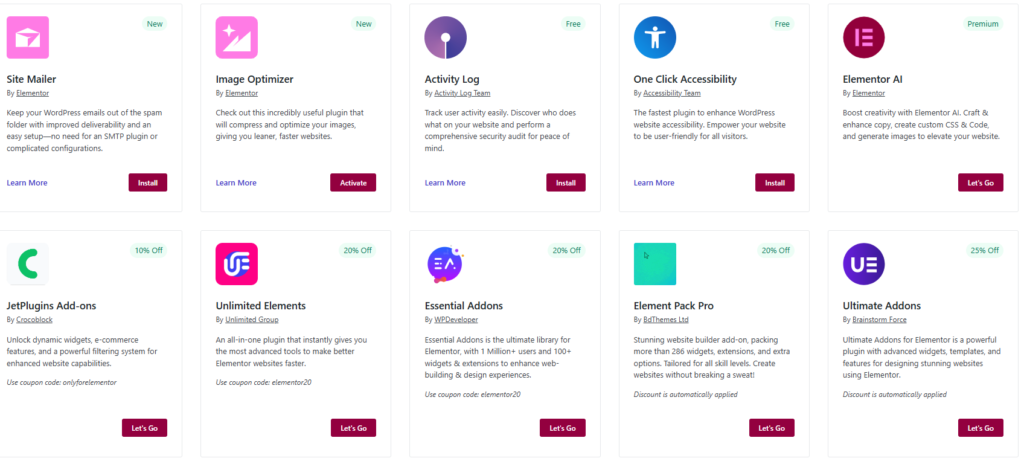
Popular add-ons, such as Essential Addons and Element Pack Pro, include whole libraries of widgets, each designed to bring unique capabilities and expedite design workflows. For example, you can simply implement complex form fields, social feeds, testimonials, and dynamic content without the need for additional plugins or technical knowledge.
Furthermore, Elementor’s easy interaction with popular WordPress plugins like WooCommerce offers a balance of attractive design and robust functionality. WooCommerce add-ons for eCommerce sites allow customers to fully customize product pages, checkout procedures, and cart interfaces.
Form Builder
Elementor Pro provides a smooth approach to developing custom forms from within the Elementor editor, removing the need for extra plugins for many users. This built-in tool is intended to be flexible, enabling users to create a variety of forms such as contact forms, registration forms, feedback forms, and lead generation forms while keeping consistent branding and style.
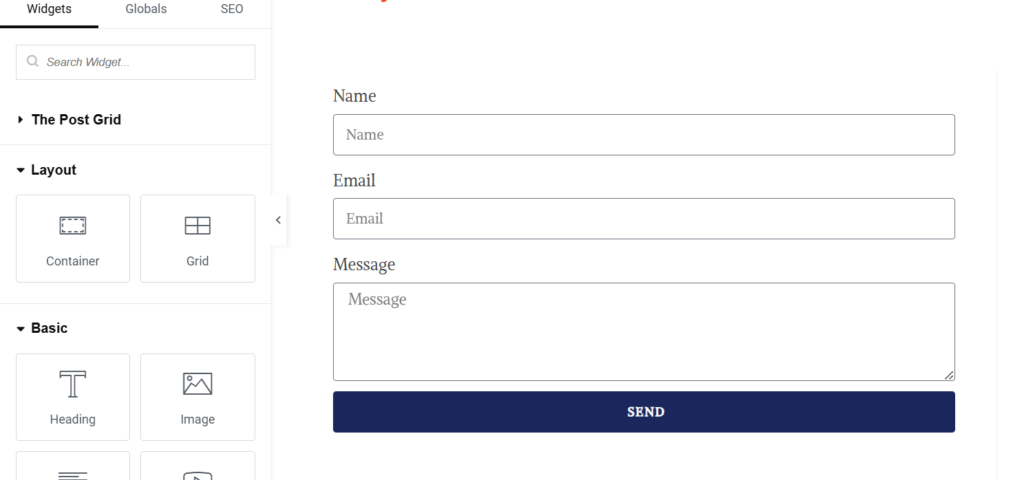
One of the most notable aspects of Elementor’s Form Builder is its ability to perform post-submit actions. Users may configure actions such as displaying personalized confirmation messages, forwarding users to a specific web page, sending automated emails, and initiating follow-up sequences. This capability improves the form experience by making it smoother and more engaging, increasing user engagement right away.
Theme Builder and Dynamic Content Support
The theme builder in Elementor Pro takes website personalization to the next level, offering users complete control over the entire site layout, from headers and footers to post and page templates. Unlike typical WordPress themes, which have limited layout options, Elementor’s Theme Builder allows users to create and decorate any major component of their website from scratch. This tool allows users to generate distinctive designs for headers, footers, archive pages, post templates, and other critical site elements while keeping brand continuity and design harmony.
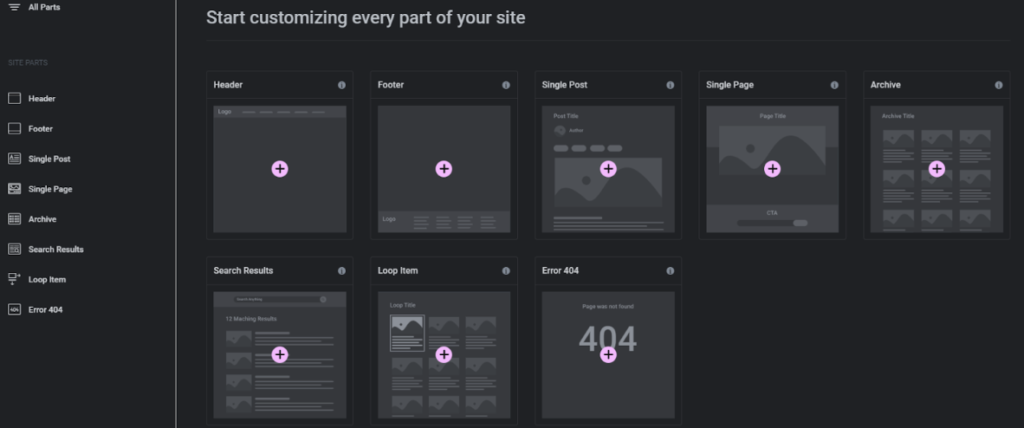
One of the most powerful features of the Theme Builder is its dynamic content support, which enables users to include real-time, bespoke data from advanced custom fields (ACF), Toolset, or JetEngine. This feature is great for websites that require personalized or dynamic information, such as eCommerce sites with personalized product details, real estate sites with unique property listings, or blog networks with author-specific posts. Dynamic content support improves the user experience by adapting material to specified parameters, resulting in a more relevant and engaging website.
Popup Builder
Elementor’s Popup Builder provides a robust toolkit for designing interesting and dynamic popups, all available through Elementor’s user-friendly drag-and-drop interface. This feature allows users to create a variety of popup designs, including lightboxes, notification bars, slide-ins, and full-screen overlays. Each style is designed to serve a unique objective, such as collecting leads, presenting promotions, or providing vital updates, allowing you to personalize user involvement to specific goals.
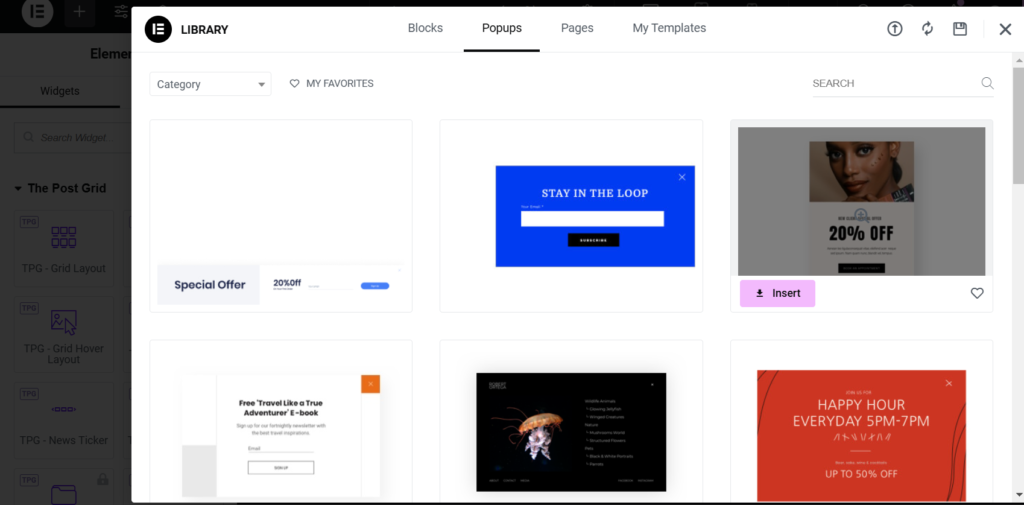
One of the most notable features of the Popup Builder is its unlimited design flexibility. Unlike typical popup tools, Elementor allows users to utilize any Elementor widget within the popup, expanding the possibilities for customisation. You may use the popup design to build a unique opt-in form, add countdown clocks, integrate social symbols, and even show media galleries. This adaptability makes it excellent for creating everything from basic announcements to complicated interactive forms, such as login or registration screens.
WooCommerce Builder for E-Commerce Sites
Elementor’s interface with WooCommerce makes it easy to create unique product pages, category pages, and even checkout procedures. Elementor’s WooCommerce Builder contains widgets for product names, pricing, add-to-cart buttons, and customer reviews, allowing you to personalize each element to match your store’s identity. Elementor’s drag-and-drop interface allows customers to create customized e-commerce pages that stand out from basic WooCommerce themes.
This connection is especially useful for online store owners trying to create a memorable shopping experience since it allows them to use unique styling and layouts that are consistent with their brand, resulting in increased engagement and conversions.
Elementor Pricing
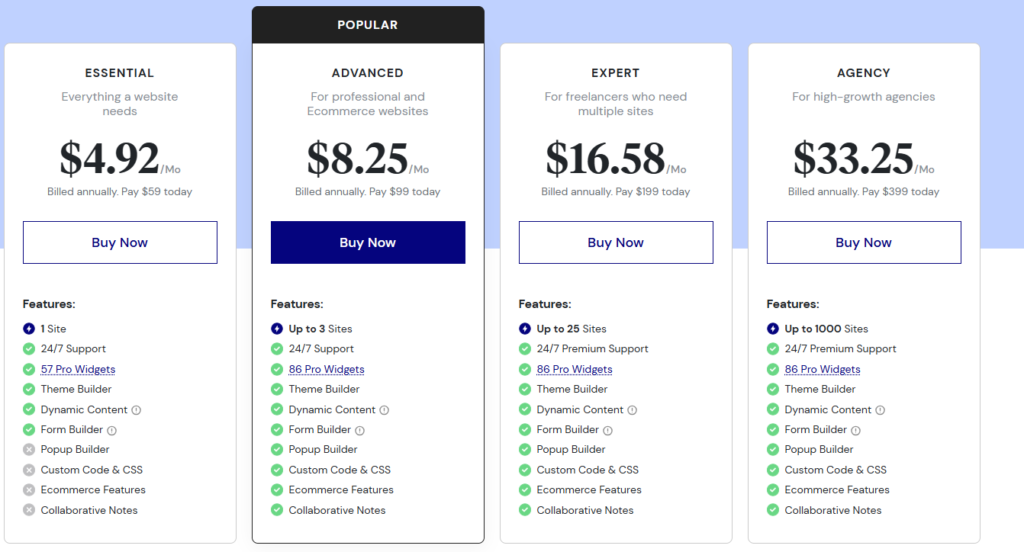
Free version
The basic version of Elementor is completely free and includes a set of fundamental design tools that allow users to create a working website without expense. This version provides necessary widgets, a straightforward drag-and-drop editor, and basic page design tools, making it an excellent starting point for hobbyists, novices, and small projects. However, upgrading to Elementor Pro is required for additional capabilities like as custom headers and footers, as well as WooCommerce integration.
Elementor Pro
Elementor Pro offers a range of advanced features across four premium plans, designed to fit different needs based on the number of sites a user manages. Each plan includes all Pro features, with variations mainly in site licenses. Here is what you can get with Elementor review Pro:
- Additional widgets
- 300+ premium demos
- Top AI tools
- Theme builder
- WooCommerce builder
- Visual form builder
Elementor has 4 pro plans:
Essential | Advanced | Expert | Agency | |
|---|---|---|---|---|
Sites | 1 | 3 | 25 | 1000 |
Pros widgets | 50 | 82 | 82 | 82 |
Popup builder | – | |||
Woocommerce support | – | |||
24/7 Customer Support | ||||
$59/year | $99/year | $199/year | $399/year |
Important links:


